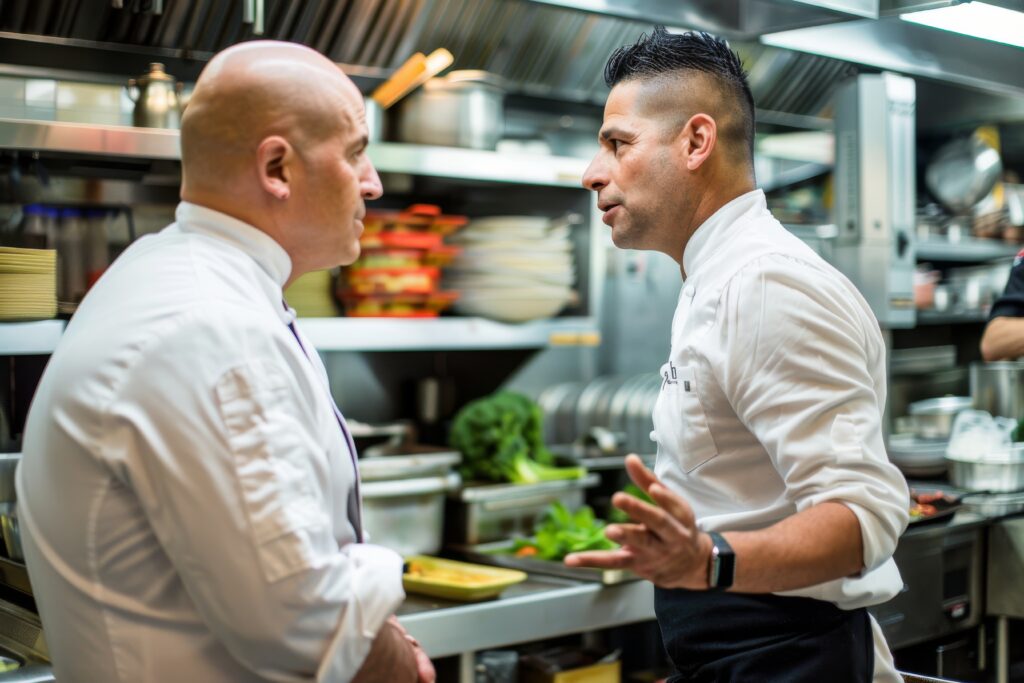Key Performance Indicators (KPIs) are more than just numbers on a report—they’re powerful tools for aligning efforts, improvinga performance, and driving financial success. In the hospitality industry, where daily decisions directly impact the bottom line, KPIs provide managers and chefs with a clear understanding of their goals and how to achieve them. Here’s how to use KPIs effectively to motivate your hospitality leaders and foster a culture of accountability and continuous improvement.
1. Set Clear, Relevant KPIs for Each Role
KPIs should be tailored to the specific responsibilities of managers and chefs.
- For Managers: KPIs like daily wage percentages, beverage COGS (tracked weekly and theoretically), and revenue performance provide actionable insights for front-of-house operations.
- For Chefs: Weekly food COGS, waste reduction, and menu profitability metrics (with theoretical tracking) ensure the kitchen is running efficiently.
When KPIs are relevant and role-specific, they become meaningful benchmarks for success, driving both operational efficiency and financial outcomes.
2. Communicate KPIs Clearly and Regularly
For KPIs to motivate, managers and chefs must understand their purpose and relevance.
- Transparency: Share the “why” behind each KPI, explaining how it ties into the venue’s overall goals.
- Regular Updates: Provide weekly updates during coaching sessions and encourage daily reviews of wages and sales performance to keep managers and chefs engaged and focused.
Clear communication ensures that everyone knows what’s expected and how their performance impacts the venue’s success.
3. Foster a Collaborative Approach to Achieving KPIs
KPIs are not just individual targets—they should encourage collaboration between front-of-house and back-of-house leaders.
- Shared Goals: Managers and chefs can align on objectives like improving wage percentages and reducing waste while maintaining service and food quality.
- Coordinating Beverage and Food COGS: Managers and chefs can work together to ensure overall COGS align with revenue, leveraging theoretical and actual tracking methods to fine-tune performance.
Collaboration fosters a sense of shared purpose and strengthens the connection between operational and culinary strategies.
4. Focus on Effort, Not Perfection
KPIs aren’t about achieving perfect results every time—they’re about making an effort to improve outcomes.
- Adapt to Quiet Days: On slow days, achieving a set wage percentage might be unrealistic. Instead, focus on actions like shortening or cutting shifts to improve the situation compared to doing nothing.
- Proactive Adjustments: For example, if sales are lower than forecasted, managers can cut back on non-essential tasks or redeploy staff to areas where they can add the most value.
By focusing on effort, managers and chefs learn to adapt and make the best of challenging situations.
5. Use KPIs to Celebrate Wins and Incentivize Success
KPIs aren’t just about identifying areas for improvement—they’re also a tool for recognizing and rewarding success.
- Acknowledge Achievements: Celebrate when KPIs like wage percentage targets or theoretical COGS improvements are met or exceeded.
- Tie Bonuses to KPIs: Use performance metrics to calculate bonuses for managers and chefs. For example, achieving theoretical COGS targets or improving weekly food COGS can trigger financial rewards.
- Reinforce Positive Behaviors: Highlight how specific actions, such as daily wage monitoring or regular stocktakes, contributed to achieving the targets.
Offering incentives tied to KPIs further motivates managers and chefs to strive for excellence while aligning their efforts with business objectives.
6. Provide Coaching and Support to Meet KPIs

If managers or chefs fall short of their KPIs, offer guidance and resources to help them improve.
- Weekly Coaching: Regular coaching sessions provide an opportunity to review performance, discuss challenges, and set actionable goals.
- Daily Monitoring: Encourage managers to track wages and sales daily to identify trends or issues in real time, ensuring immediate adjustments where needed.
- Tools for Success: Equip chefs with systems like Cooking The Books to track theoretical food COGS and help managers implement stocktake processes for theoretical beverage COGS.
Supportive leadership ensures that KPIs are seen as achievable rather than intimidating.
7. Encourage Healthy Competition Through KPIs
Comparing performance across departments or shifts can create a sense of friendly competition.
- Performance Tracking: Share how different shifts or days are performing against key metrics like daily wage percentages, weekly COGS, and beverage profitability.
- Recognition Programs: Highlight top-performing managers or chefs in team meetings to motivate others to excel.
Healthy competition inspires managers and chefs to strive for greater success while fostering a culture of excellence.
8. Case Study: Motivating Managers and Chefs with KPIs
One hospitality venue transformed its winter performance by focusing on daily and weekly KPI tracking.
- Daily Wage Percentages: The manager reviewed wage percentages daily and proactively shortened or cut shifts on slow days to prevent overstaffing, resulting in a 10% reduction in wage costs.
- Beverage COGS: By implementing theoretical beverage COGS tracking alongside regular stocktakes, the manager reduced beverage costs by 8%.
- Food COGS: The chef used Cooking The Books to track theoretical food COGS and adjusted portion sizes and recipes accordingly, cutting food costs by 15%.
- Menu Profitability: Weekly menu reviews identified high-margin dishes, leading to pricing adjustments that increased menu profitability by 12%.
These efforts, driven by both daily monitoring and weekly reviews, demonstrated that even small, consistent efforts to improve outcomes can lead to significant results.
The Power of KPIs for Managers and Chefs
KPIs are more than just performance metrics—they’re a way to inspire managers and chefs, foster collaboration, and drive results. When used effectively, KPIs give hospitality leaders a clear roadmap to success while providing the motivation and support needed to achieve their goals.
By focusing on effort, rewarding achievements, and fostering a culture of continuous improvement, venues can empower managers and chefs to unlock their potential and achieve sustained financial success.

